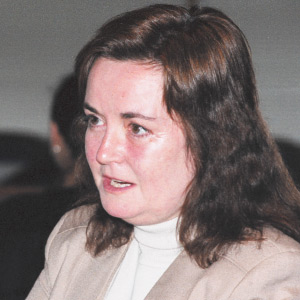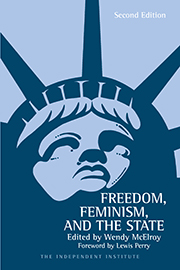“What can they do to an old woman like me?”
That’s how 80-year-old Gao Yaojie responds to threats from the Chinese government. In 1996, the now-retired doctor became instrumental in exposing an AIDS scandal involving China’s blood banks that officials still want to quash. But the powerful Communist bureaucracy that rules a nation of 1.3 billion people cannot silence one old lady who is on a crusade.
The silence, however, is cracking wide open. Part of the reason is that China will be hosting the 2008 Olympics, which demands China embrace greater openness to international media. On Jan. 1, for example, new rules went into effect by which some journalists can travel into the provinces without prior government approval.
However, another reason the silence surrounding China’s dismal record on AIDS is fading is because Gao has been recognized by the international community as a champion of AIDS patients who are victims of both bureaucracy and disease.
In a scramble for damage control, Chinese officials are simultaneously punishing and praising the grandmotherly dissident.
For example, last week policemen placed Gao under de facto house arrest, presumably to prevent her from making arrangements to accept an award in New York City next month. Yet, on Feb. 12, a high-ranking Communist official visited her home to grab a photo-op with Gao who was then lauded in the party’s newspaper.
What are officials so eager to cover up?
It began in April 1996 when a female patient with “no-name fever” entered the hospital in China’s central Henan province where Gao worked. The woman pleaded, “I don’t want to die! My husband and my child can’t live without me.”
She died 10 days later. For over a week, the woman’s husband slept by her grave in an act of contrition: He had approved a blood transfusion years before through which Gao determined that the woman had contracted AIDS.
“I was astonished to find that the contaminated blood had come from a blood bank,” Gao stated. “If a blood bank has been contaminated with HIV, there certainly must be more than just one victim!”
She was correct.
In the 1990s, “unofficial” blood banks flourished and Chinese peasants were encouraged to sell their blood in order to harvest the plasma. The “clinics,” sometimes run by local politicians or the military, had to overcome the reluctance of many peasants to give blood. Thus, it became commonplace to re-infuse donors with plasma-stripped blood that was drawn from a general pool. That blood was not tested for AIDS.
No one knows how widespread the resulting problem is.
According to The Economist, “The United Nations estimates that at the end of 2005 there were 55,000 commercial blood and plasma donors infected with HIV in China....One Chinese AIDS expert, Zhang Ke, reported in 2004 that the figure for Henan province...could be more than 170,000. Dr Zhang estimated that a further 130,000 in Henan got the virus from transfusions in hospitals.”
Estimates on how many people have been infected through other vectors of disease (e.g. unprotected sex) do not seem to exist. One thing is clear, however. Although policies on blood donation and transfusions have been tightened, the spread of AIDS in China has taken on a life or death of its own.
The government seems more interested in preventing information than preventing the disease. Gao, who continues to print and circulate educational brochures at her own expense, is a source of chronic embarrassment for the government. She is also exposing the corruption of officials who misappropriate money and resources intended for the AIDS victims.
The accusations of corruption are accumulating.
For example, in 2005, the powerful Party member Wen Jiabao took a much-publicized inspection tour of AIDS prevention work. At Wenlou village, he promised patients that they would each receive 10 yuan (a Chinese dollar) or a total of 8,830 yuan in all. The allocated money vanished as did subsequent shipments of food to the area.
Gao tirelessly raises funds for AIDS victims but she has appealed for people not to donate money to the effort in Wenlou. “[G]o and tell your friends and readers not to donate money or material to Wenlou village,” she has said. “This is just a PR project to deceive the public....This is a �Äòblack hole’...There are quite a few more �Äòblack holes’ in Henan like this one.”
No wonder the government wants to silence Gao...along with the growing ranks of anti-AIDS activists whom she has emboldened.
It is too late to quiet her now; the world is paying attention. Consider Li Xige, who was infected during a blood transfusion in childbirth and passed AIDS on to her now-deceased daughter. Last July, she traveled to petition the Beijing Municipal Health Bureau for assistance. Instead, she was arrested on the charge of “assembling crowds to attack state institutions.”
Human rights organizations and the media immediately advocated on Li Xige’s behalf. According to Amnesty International: “Following her release on 10 August, she was placed under tight police surveillance and warned not to travel outside her home county...or talk to foreign media.”
Chinese attempts to cover up the AIDS epidemic and scandals have been so clumsy that they have merely created more interest.
Last November, I toured China in the company of various guides who clearly follow the official Communist line on political matters. On separate occasions, three different guides assured me that the AIDS situation was firmly under the government’s control. The interesting thing: I hadn’t asked them anything about AIDS. But, since they brought the subject up, I pursued it.
The path led directly to where they did not wish me to go: Gao Yaojie.









